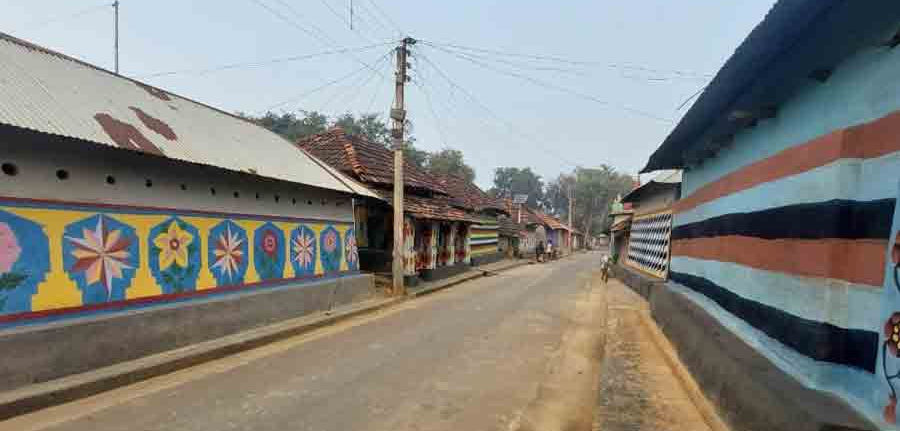
Indigenous Resilience in West Bengal
University of York collaborator
Prof David Stirrup, Department of English and Related Literature
Bio: David Stirrup is Professor of American Literature and Indigenous Studies and is based in the Department of English and Related Literature. He is a founding co-editor of the online, open access journal Transmotion, which publishes scholarship on contemporary, innovative Indigenous writing from around the world.
In 2019 David launched Europe’s first Centre for Indigenous and Settler Colonial Studies at the University of Kent, drawing on a broad network of institutions in the UK, US, and Canada. The “hub” of the Centre has come to York with him, with co-Directors at Kent, Alberta, and LCC. Alongside research activity, the Centre collaborates with non-University groups, including the Indigenous Rights-focused NGO, Incomindios UK, and the Greenham Common-Shoshone Nuclear Colonialism project.
David is the author of two monographs (Louise Erdrich, Manchester UP, 2010; and Visuality and Visual Sovereignty in Contemporary Anishinaabe Literature, Michigan State UP, 2020). He has co-edited Tribal Fantasies: Native Americans in the European Imaginary, 1900-2010 (with James Mackay, Palgrave, 2013), Parallel Encounters: Culture at the Canada-US Border (with Gillian Roberts, Wilfrid Laurier University Press, 2014), Enduring Critical Poses, Beyond Nation and History (with Gordon Henry, Jr. and Margaret Noodin, SUNY Press, 2021), and The Canada US Border: Culture and Theory (with Jeffrey Orr, Edinburgh University Press, 2024) along with four special journal issues on subjects ranging from culture and the Canada-US Border to Native Americans in the European Imaginary.
Recent grant-funded projects include Beyond the Spectacle: Native North Americans in the European Imaginary (AHRC), Indigenous Knowledges (AHRC-NEH), and The Metis: a Global Indigenous People (AHRC). He is particularly interested in questions of relational praxis through co-production, Indigenous-centred methodologies, and ethical engagement from Europe.
International Collaborator
Debashree Dattaray, Department of Comparative Literature, Jadavpur University
Bio: Debashree Dattaray is Professor in the Department of Comparative Literature at Jadavpur University, India and is also co-ordinator of the Centre for Canadian Studies, Jadavpur University. She has been awarded a Fulbright Alumni Award 2019, the Shastri Mobility Programme (McGill University), CICOPS Fellowship (University of Pavia), a Fulbright-Nehru Visiting Lecturer Fellowship (UC Berkeley), the Erasmus Mundus Europe Asia Fellowship (University of Amsterdam) and Fulbright Doctoral Fellowship (SUNY, Stony Brook).
Her areas of research are Environmental Studies, Indigenous Studies, Comparative Literature and Digital Humanities. She is author of Oral Traditions of the North East: A Case Study of Karbi Oral Traditions (JU 2015) and has co-edited At the Crossroads of Literature and Culture (Primus 2016), Following Forkhead Paths: Discussions on the Narrative (Setu 2017), Ecocriticism and Environment: Rethinking Literature and Culture (Primus 2017), Literature and the Other Arts (JU Press 2023), Finding Philosophers in Global Fiction (Bloomsbury 2024).
She is on the Editorial Board of Littcrit: An Indian Response to Literature, Lagoonscapes: The Venice Journal of Environmental Studies, and Environment, Senses and Emotions (University of Exeter Press) and is Series Editor for Environmental Humanities and Indigeneity (Peter Lang).
She is Principal Investigator of an ICSSR Major Research Project on “Digital Empowerment and Traditional Knowledge Systems: A Case Study from Bankura and Purulia, West Bengal”.
She is the nominated member for Jadavpur University for the India Member’s Council, Shastri Indo-Canadian Institute and is the Zonal Representative (East) for the Indian Association for Commonwealth Literature and Language Studies (IACLALS).

.png)